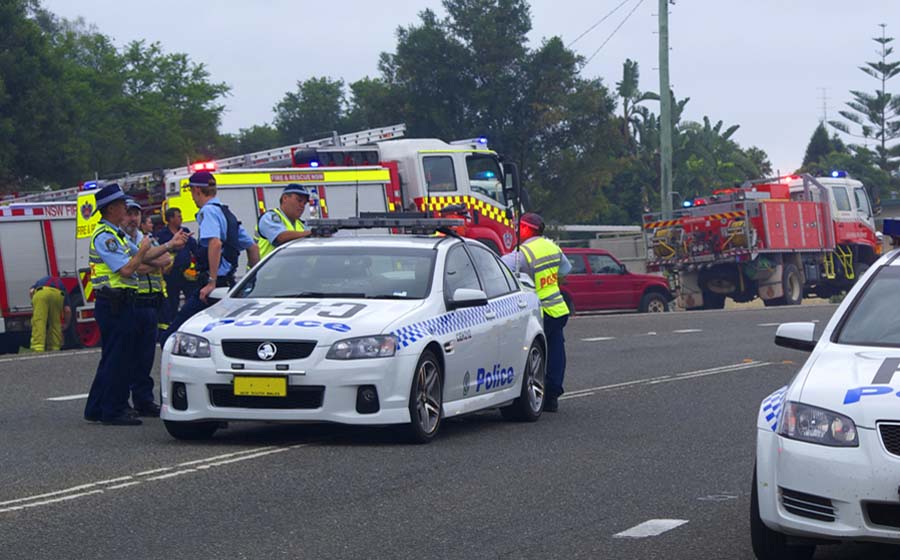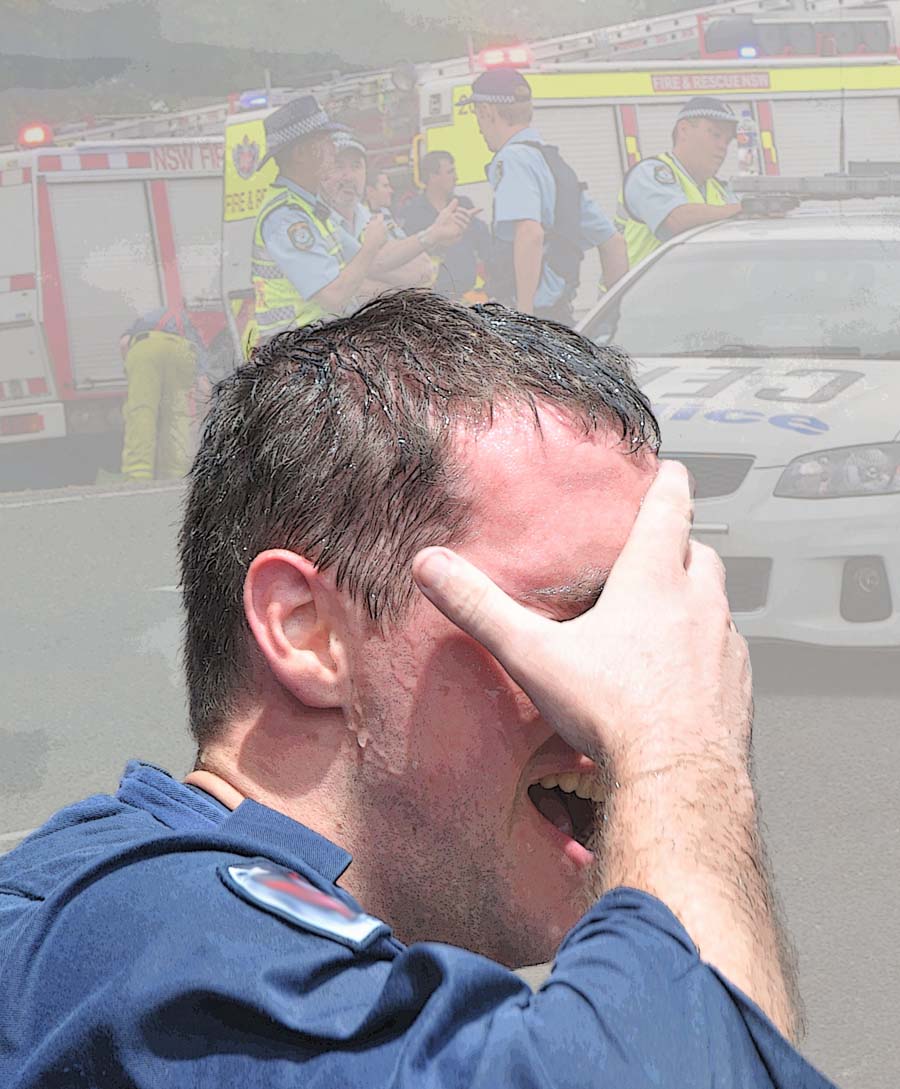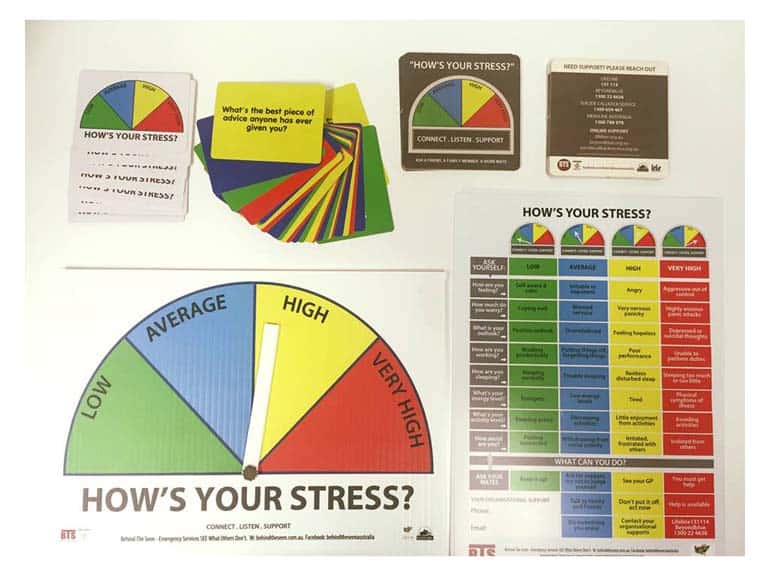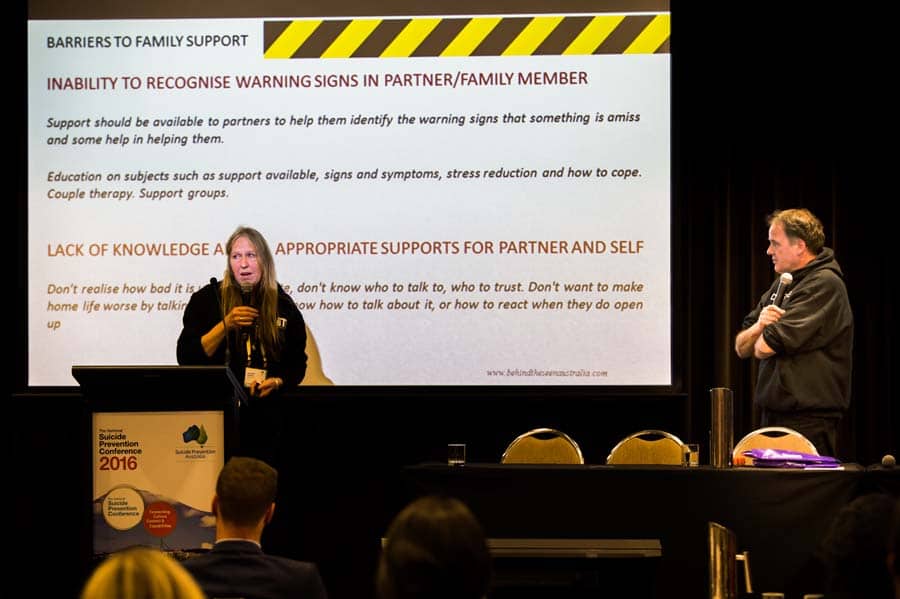What We Do
Behind The Seen has been designed for the whole 000 emergency response network in Australia (paid and voluntary)
We engage with local and national emergency services communities, lobby for policy change and design and implement programs to improve the mental health and well-being of emergency services personnel and their families
Behind the Seen workshops are run by our trained staff in emergency services workplaces across Australia. Workshops range from 2 hours to full day sessions, depending on requirements; the facilitators take a “back to basics” approach, utilising lived experience to encourage meaningful conversations in the workplace and at home with families
Behind the Seen workshops are not a replacement for organisational support services; they are designed as an external complementary strategy.
As of 2019, Behind the Seen has conducted workshops with over 1000 first responders and family members at their workplaces, local community centres and national conferences.
Feedback has shown that our workshops:
- increase conversations around mental health with colleagues
- clarify organisational and community support systems
- explain stress and resilience in simple and entertaining ways
- encourage positive help seeking behaviours
- made families feel informed, valued and capable of supporting their first responders
- helped reduce stigma around mental health

Foundational Workshop
The foundational Behind The Seen workshop is designed to inspire conversations about first responder mental health utilising lived experience, demonstrations, “trigger” gifts, take home packs for the participants and their families.
Sessions are delivered at station level OR in a community venue
The sessions are a precursor or an addition to structured mental health first aid programs
Examples of topics covered include:
- Unique stressors of first responders
- How to recognise symptoms of stress in a mate
- How do you prepare new recruits for incidents?
- How do we overcome the old “toughen up” culture?
- How do I deal with my own stresses?
- How can we set up our own local support networks?
Sessions can be customised to identified team needs.


Families of First Responders Workshop
The emotional wellbeing of emergency services partners and children is often overlooked. We have designed a workshop specifically for these family members.
This workshop can be run in conjunction with the Foundational Workshop, or as a stand-alone workshop.
Examples of topics covered include:
- What is different about being the partner/child of someone in emergency services?
- What to do when your partner has been to a traumatic incident
- Warning signs to be aware of
- Encouraging open communication
- When “the brotHERhood” seems more important than “the family”
- Enabling versus supporting
- Maintaining a sense of self
Stress Less Conversation Pack & Workshop
The Stress Less Conversation packs, developed in partnership with the Centre for Rural and Remote Mental Health, are designed to initiate conversations in a broader range of workplaces.
Occupations who have utilised the pack in their teams with positive outcomes include hospital emergency staff, psychologists and social workers, mental health workers, corrections staff, community workers, child protection workers, refuge workers, advocacy workers and more.
With recent funding from Foundation for Rural and Regional Renewal we will soon include a facilitator guide to encourage peer support workshops utilising the packs.


Speakers: Conferences, Symposiums, Workshops
Our founders Ross and Veronique have been presenting at national mental health conferences for the last 6 years. The topics presented have included:
- Mental Health of First Responders: A Lived Experience Perspective
- Families of First Responders: The Hidden Lives
- Respectful Relationships: Collaborations Between Researchers, Practitioners and Those With Lived Experience
- Addressing the Burden of Poor Mental Health Among Australian Emergency Services Workers (with Black Dog Institute researchers)
- Physical Activity and Mental Health (in collaboration with UNSW researchers)
